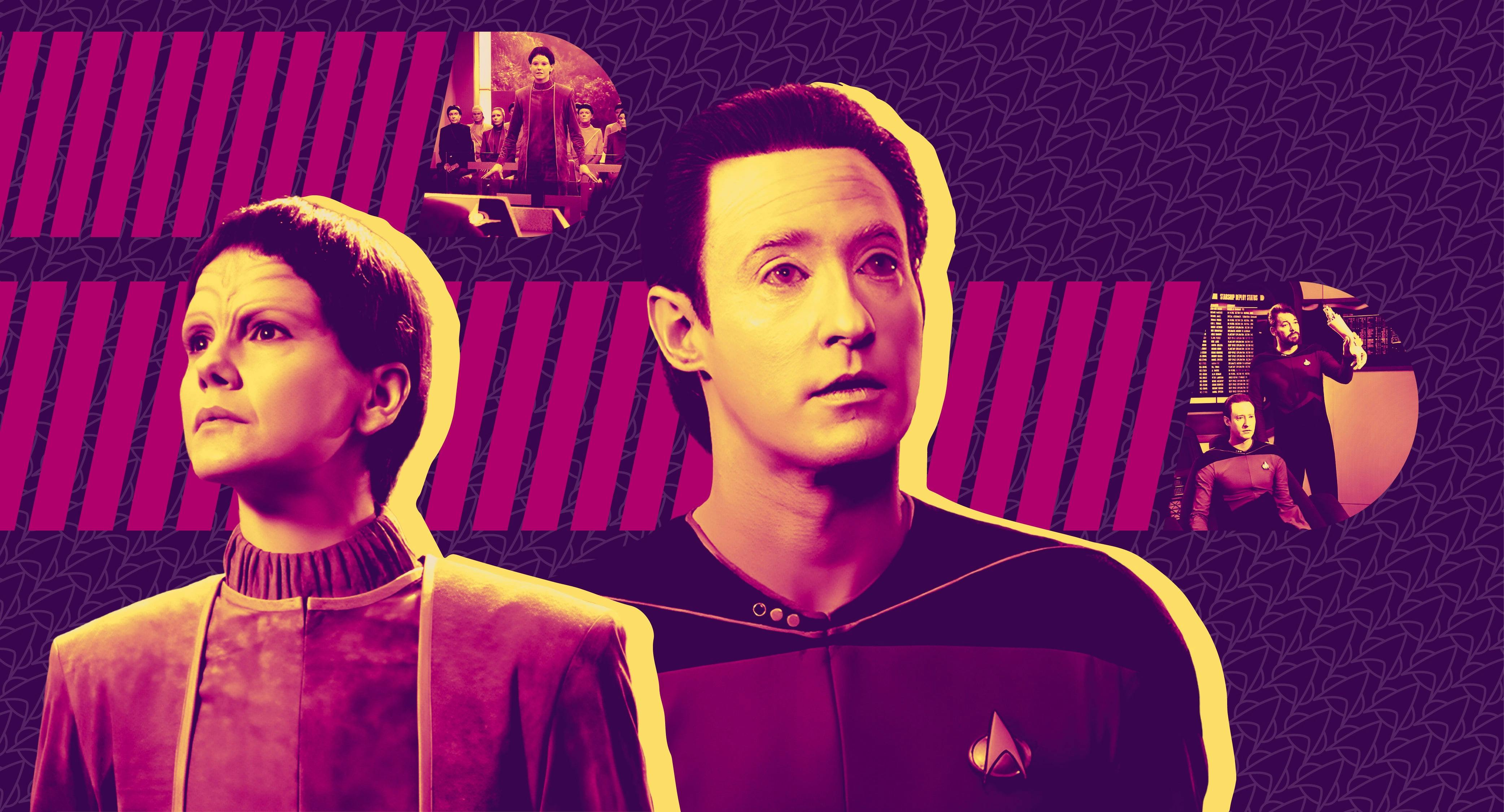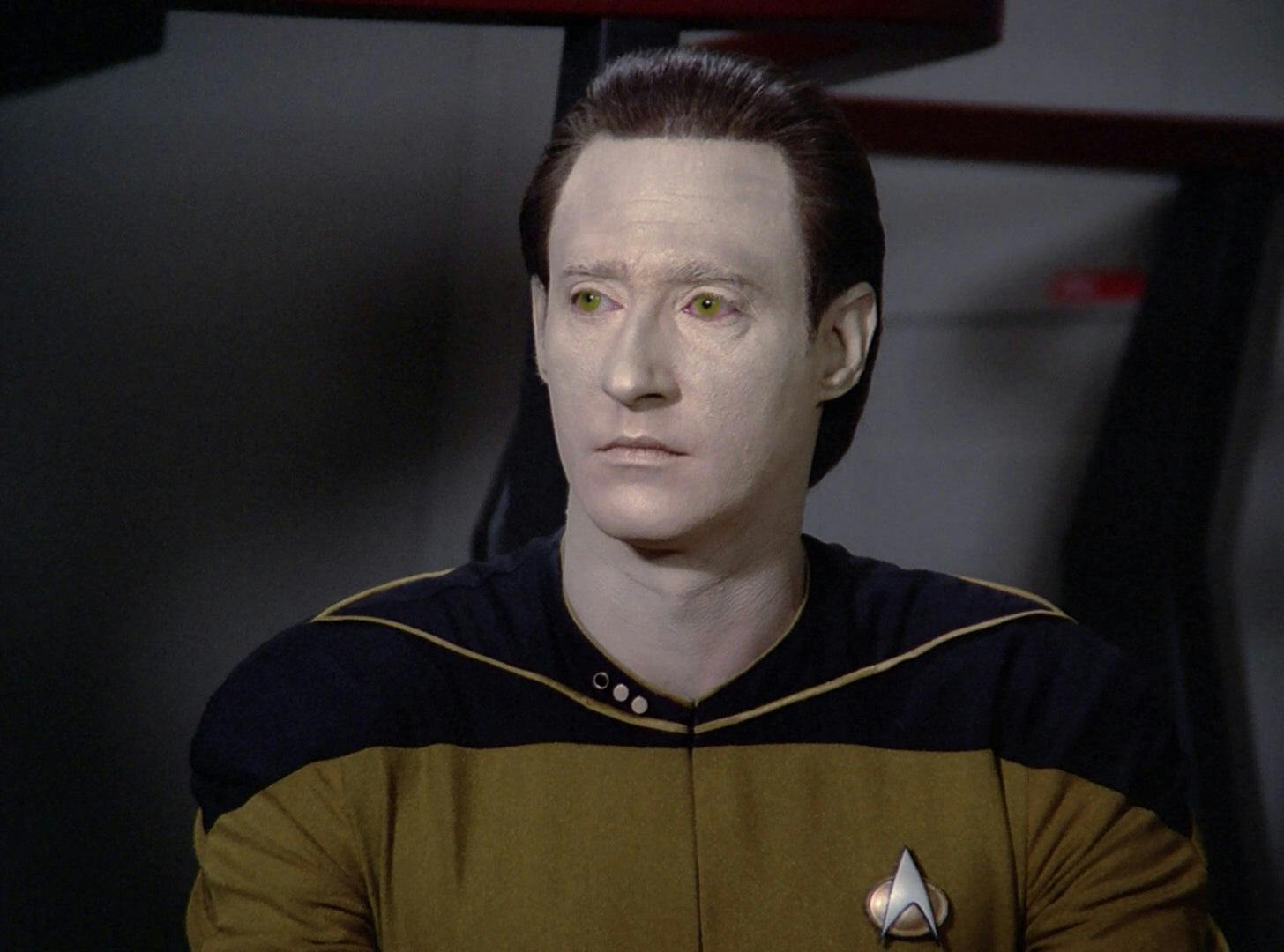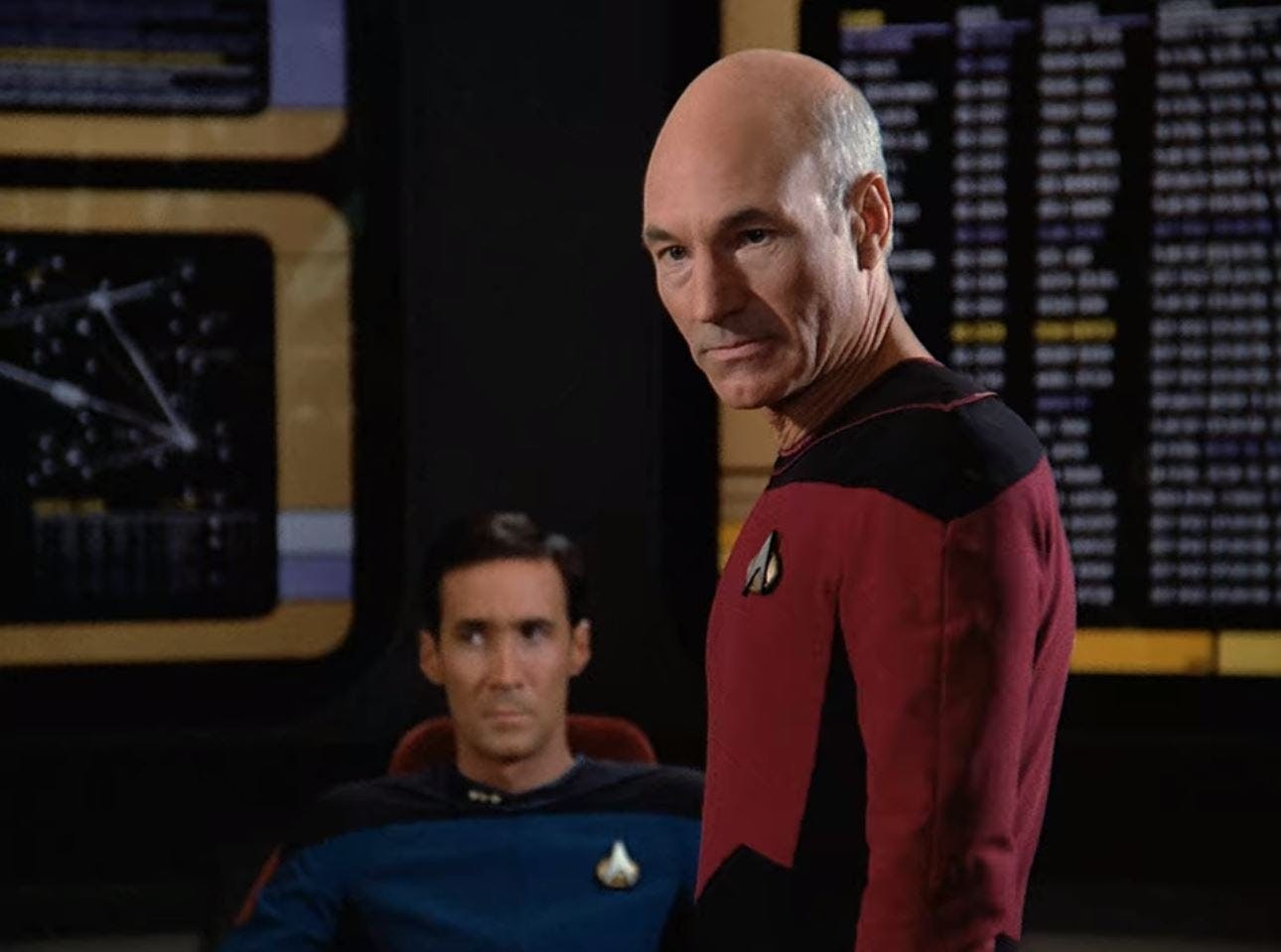Published Jul 6, 2022
Star Trek Has Always Advocated For Choice
In the future, our autonomy will matter.

StarTrek.com
Much like the title of this essay says, Star Trek has always advocated for choice. Much of the best of Star Trek demonstrates that we have to continue to make personal choices to strive for the utopian ideals that are present in the show. A world like the Federation’s doesn’t just happen and then remains static; the characters have to choose, over and over again, to make the right choice or the hard choice, to continue to uphold their values and succeed.
But it goes beyond that. Star Trek is also about personal choice with regards to one’s well-being and bodily autonomy. The franchise advocates that everyone deserves the chance to decide for themselves what to do with their bodies and health, and that message is as timely as ever.
Consider the classic TNG episode “The Measure of a Man.” In it, Dr. Bruce Maddox orders Data, who he views as an object, to be transferred to his command. Maddox, determined to recreate the work of Dr. Soong, intends to take him apart to better understand how Data works, and he doesn’t care that Data is a being with feelings and opinions on what happens to him. Data respectfully declines to undergo the procedure, and even attempts to resign from his position to avoid it. Maddox, however, doesn’t take no for an answer, prompting a hearing to discuss the matter and decide Data’s fate.

StarTrek.com
Acting as Data’s defense, Picard states that this matter will go beyond this hearing, affecting all androids that could follow in his footsteps. He pushes back against the idea that a sentient being like Data be viewed and treated as property saying:
“Now sooner or later, [Commander Maddox] – or others like him – will succeed in replicating Commander Data. The decision you reach here today will determine how we will regard this creation of our genius. It will reveal the kind of people we are; what he is destined to be. It will reach far beyond this courtroom and this one android. It could significantly redefine the boundaries of personal liberty and freedom— expanding them for some, savagely curtailing them for others. Are you prepared to condemn [Commander Data], and all who will come after him, to servitude and slavery?”
Captain Louvois, who sits in judgement of the proceedings, admits that this is a confusing and polarizing topic that raises many questions, including whether Data has a soul. She ultimately states, “I have got to give him the freedom to explore that question himself. It is the ruling of this court that Lieutenant Commander Data has the freedom to choose.”
Choose. That’s a heavy word. Data of course chooses not to undergo Maddox’s procedure, but what is most important is that he is given the choice to say no. It would be easy for the Federation, which sits in a place of privilege, to deny Data his personhood based on their biases and prejudices. It would have been easy for them to take away Data’s rights and condemn all those who came after him to a similar fate, as that wouldn’t affect their own rights as humans. In the idealized world of Star Trek, justice prevails. Captain Louvois understands that to take rights away from one group is to hurt all, and therefore rules in favor of Data.
Data’s personhood is called into question frequently throughout the series; however, this episode shows the legal ramifications that poses. Data is a sentient being who has the right to decide if he wants to undergo a medical procedure that might kill him, or even alter his essence in any way. Maddox is presented as being fully in the wrong for his behavior and treatment of Data. The episode clearly advocates for bodily autonomy in the face of oppression and prejudice, and the law agrees with our heroes. The ruling allows for Data to live in peace knowing his rights will not be infringed upon, and sets a precedent for those who come after him, saving them from the indignity of a trial.

StarTrek.com
Another episode, though not handled as well as “The Measure of a Man,” that deals with choice and autonomy is “The Outcast.” When the Enterprise discovers a society of androgynous aliens, Riker falls for one who wants to break free from the oppression of her society. When Soren, who identifies as a woman, is arrested for this transgression, she delivers a speech to the tribunal that rings painfully true in our own binary society:
"I am female. I was born that way. I have had those feelings, those longings, all of my life. It is not unnatural. I am not sick because I feel this way. I do not need to be helped. I do not need to be cured. What I need, and what all of those who are like me need, is your understanding, and your compassion. We have not injured you in any way, and yet we are scorned and attacked. And all because we are different. What we do is no different from what you do. We talk and laugh. We complain about work. And we wonder about growing old. We talk about our families and we worry about the future. And we cry with each other when things seem hopeless. All of the loving things that you do with each other – that is what we do. And for that we are called misfits, and deviants and criminals. What right do you have to punish us? What right do you have to change us? What makes you think you can dictate how people love each other?”
Soren has not committed any crime; she’s “guilty” because of her desire for autonomy and the path she chooses for herself. She identifies as a woman; therefore, she is a woman. To deny her the right to express herself is criminal, because no one person should have the right to take away another’s identity or their autonomy. However, the episode ends tragically with Soren’s rights taken away. She is forced to undergo what is essentially conversion therapy and forced to live an unauthentic life antithetical to her identity.
This episode paints what happens to Soren as a tragedy. There is no attempt at sympathizing with her oppressors, with viewers left to mourn what happened to her. There is no denying that the real crime of the story is the termination of her rights. As Riker’s heart breaks for her, so do ours. So why is it that when the inalienable rights of people in our world are threatened, we feel the need to stay silent or, worse, to join in with those seeking to deny this group their ability to live their lives?
Star Trek has always said that choice is important. Not just the choices that determine right from wrong, but the choices we deserve to be able to make for ourselves, as well. In an ideal society, people are free to have the autonomy of choice in their lives — be it for bodily autonomy or for choice of identity. When people clash with this idea, or when an alien society presents choice as a crime, these characters are shown wholeheartedly as villainous.

StarTrek.com
When it comes to looking to Star Trek for inspiration, we can look here for hope that someday, everyone will have full bodily autonomy. We can also look to it for inspiration that no matter what the cause, someone will stand up and fight for a person’s right to choose. We don’t always have Captain Picard on our side, but we can stand up for ourselves and hope to inspire others to join us. This is a time for those who believe that every person deserves to have the right to choose what happens to them as individuals, and to stand together and say, in a unified voice, that all beings should have bodily autonomy.
Now is the time to speak up. Now is the time to act in defense of those groups who are facing oppression. And now is the time to advocate for their ability to live their lives in peace, with inalienable rights everyone deserves. Just as Picard used his privilege to advocate for his friend who needed him, so should we all be standing up for those who need it. Now is the time to make the choice to embody the values that Star Trek teaches. If not now, when?
K.S. McKenzie (they/them) is a writer and a Trek devotee. Their favorite Star Trek series is Deep Space Nine.

